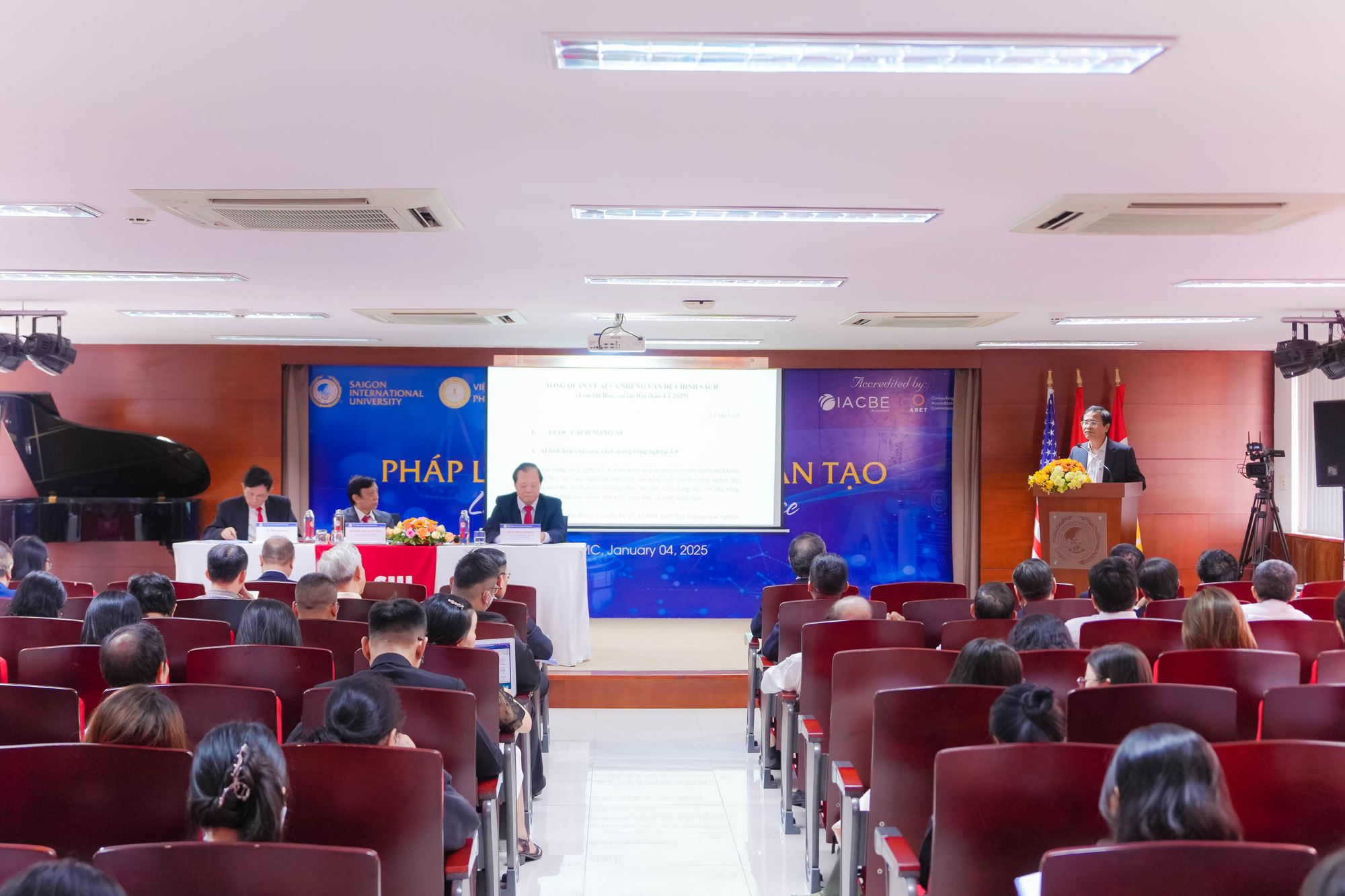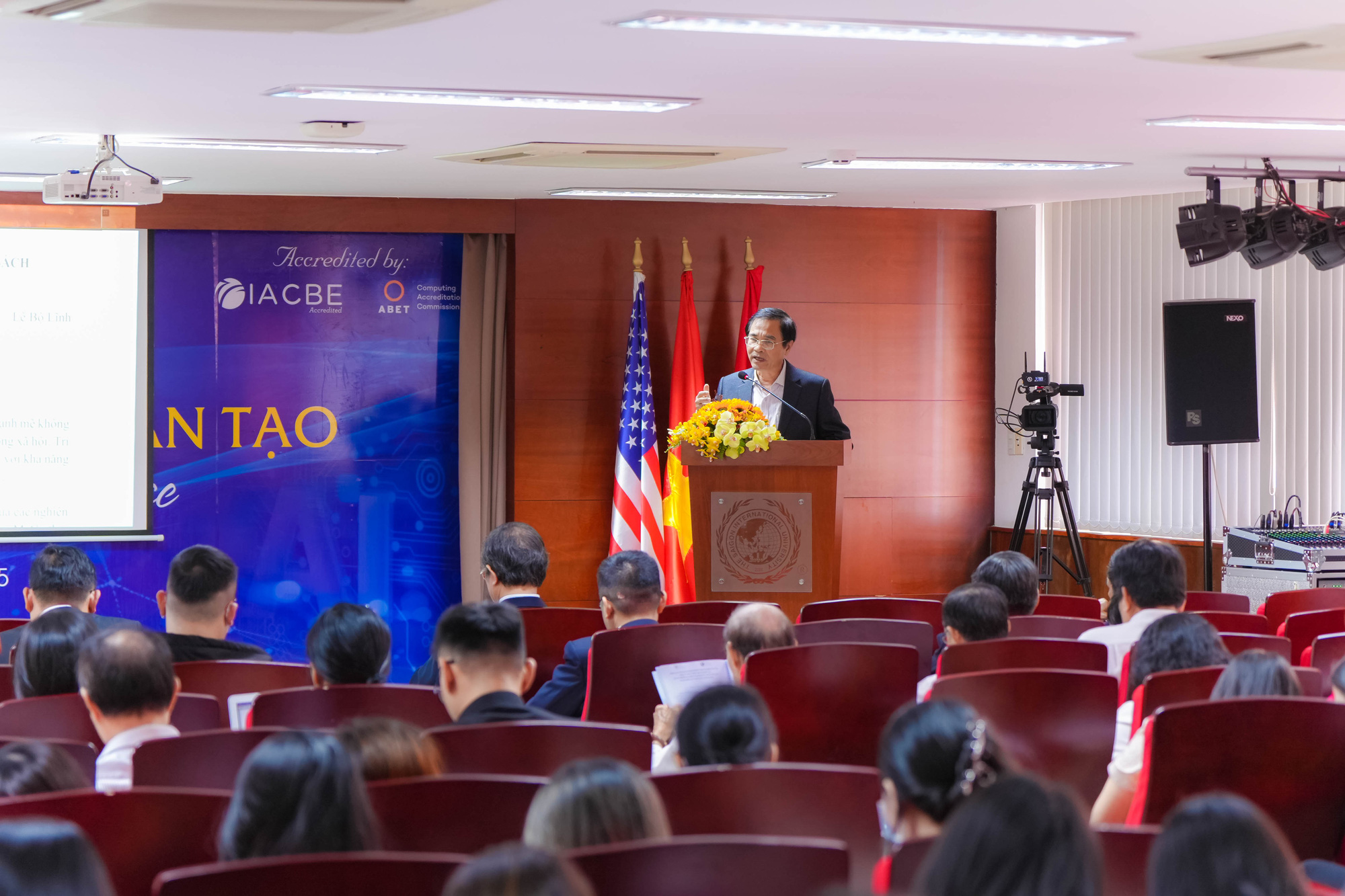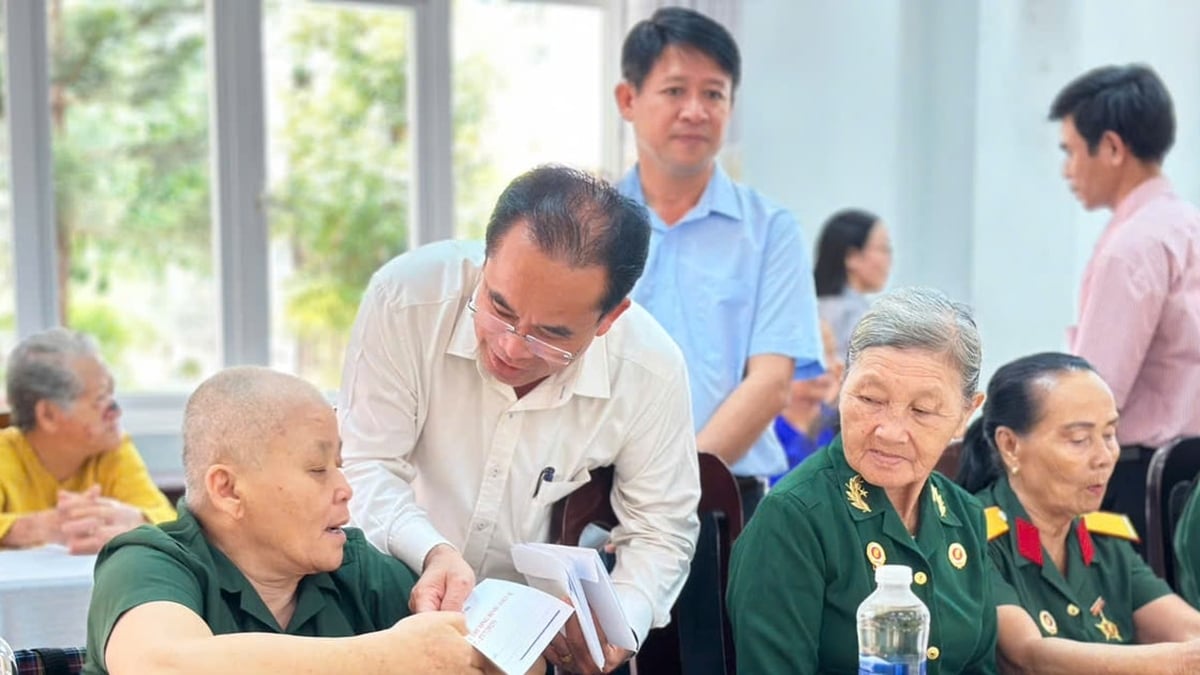AI has been and is being used to commit illegal and criminal acts. Therefore, it is necessary to develop and perfect policies and laws on AI.

Overview of the workshop - Photo: SIU
That was the issue raised by many delegates at the Artificial Intelligence Law workshop organized by Saigon International University on the morning of January 4.
Legal framework needed for AI
At the workshop, Prof. Dr. Phan Trung Ly - former Chairman of the Law Committee of the National Assembly - said that in Vietnam, artificial intelligence (AI) has been gradually entering human life, increasingly proving its important role in promoting socio -economic development and ensuring national security.
Along with the positive aspects, AI has also had negative impacts, raising deep concerns about potential risks from ethical, social, and legal aspects.
In addition, AI has been and is being used to commit illegal and criminal acts. Therefore, the development and completion of policies and laws on artificial intelligence in Vietnam is urgent.

Prof. Dr. Phan Trung Ly - Photo: SIU
According to Mr. Ly, it is necessary to create a legal framework to promote the development and application of AI. Specifically, the State needs to encourage businesses, organizations, and individuals to develop, provide, deploy, and use reliable and human-centered AI systems, and encourage small and medium-sized companies to provide AI systems to participate in the testing mechanism for digital technology products and services.
Civil and intellectual property law need to address the issue of ownership of AI products. Will humans or AI own artificial intelligence products?
In the development of AI systems that involve humans, the law must pay special attention to respecting the human rights and dignity of the individuals involved.
To the extent possible, depending on the characteristics of the applied technology, developers should take measures to ensure that they do not cause discrimination or unfairness due to bias in the data when training AI systems.
Developers need to take precautions to ensure that AI systems do not violate human values and social ethics according to Vietnam's basic principles. Especially basic values including patriotism, solidarity, self-reliance, loyalty, honesty, responsibility, discipline, creativity, protection of spatial privacy, information privacy (personal data) and confidentiality of communications...
Who is responsible for the damage caused by AI?

Associate Professor, Dr. Le Bo Linh at the conference - Photo: SIU
Regarding the development of a new law on AI, Associate Professor Dr. Le Bo Linh - Institute for Law and Society Studies, former Deputy Secretary General of the National Assembly - proposed that the ministry issue ethical principles for the development, deployment and application of AI. Digital technology products and content created by AI must be clearly identified as being artificially created or manipulated.
AI systems will be classified according to their risk levels based on their impact on health, the legitimate rights and interests of organizations and individuals, human safety or property, the safety of national important information systems and critical infrastructure. These classifications allow AI systems to be managed according to their different risk levels.
Additionally, one of the first legal issues related to artificial intelligence is intellectual property and copyright.
In the development of AI, the creation of algorithms, models, and training data is very important. However, current IP regulations have not kept up with the development of technology.
In particular, determining who owns the copyright to AI-generated products is complicated. If an AI creates a work of art or a software program, the question is whether the AI or the person who programmed the AI owns the product. Current regulations may not be entirely appropriate, leading to potential disputes in the future.
The issue of liability when AI causes damage is also raised. AI can make decisions without human intervention, which creates a difficult legal situation to determine. When an AI system makes a mistake or causes damage to a human, the question is who is responsible? Is it the manufacturer, the developer, or the individual user?
Source: https://tuoitre.vn/ai-gay-thiet-hai-ai-chiu-trach-nhiem-20250104134035537.htm























![[Photo] National Assembly Chairman Tran Thanh Man visits Vietnamese Heroic Mother Ta Thi Tran](https://vphoto.vietnam.vn/thumb/1200x675/vietnam/resource/IMAGE/2025/7/20/765c0bd057dd44ad83ab89fe0255b783)











































































Comment (0)